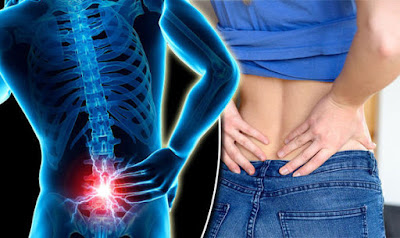Hypertension or High Blood Pressure
What’s high blood pressure?
High blood-pressure, also called hypertension, refers to blood pushing against the walls of the arteries with chronically elevated force. Blood pressure that rises above normal levels and remains high can lead to serious health problems including heart attack, heart failure, stroke and kidney failure as well as other health problems.
What are the symptoms of high blood pressure?
Hypertension is often called a “silent killer” because even severe, uncontrolled high blood pressure often has no obvious symptoms. However, even when absolute blood pressure levels are only moderately elevated, patients may report headaches, dizzy spells, or nosebleeds. In general, however, these symptoms don’t occur unless there has been a rapid, acute change in blood pressure, or until blood pressure has reached dangerous levels.
What are the causes?
The risk of high pressure increases with age as arterial walls lose their elasticity. There can be many contributing factors, yet doctors often cannot identify an exact cause for high blood pressure, in which case the person is said to have “essential hypertension.” Potential contributing factors include but are not limited to:
- Stress. By activating the sympathetic nervous system, stress can cause the arteries to maintain a more rigid tone.
- Excessive salt consumption: The sodium in salt can cause excess water retention, expands blood volume and ultimately increases blood pressure.
- A diet low in calcium, magnesium and potassium.
- Insulin resistance: This condition can increase blood pressure by various mechanisms including increased systemic inflammation and sodium retention as a result of kidney damage.
- Excessive alcohol intake, defined as drinking in excess of two drinks daily for men under age 65, or in excess of one drink daily for women or men over age 65.
- Being overweight.
- Medications. Some prescription drugs, including steroids, birth control pills, decongestants, NSAIDS and diet pills can raise blood pressure. Some over-the-counter medicines, such as those containing licorice root, ephedra, guarana, kola nut, yerba mate, ginseng and yohimbe, may also raise blood pressure.
Some health problems including chronic kidney disease, thyroid disease and sleep apnea may also cause BP to rise.
What natural ways to lower blood pressure are recommended by Dr. Weil?
To lower bp naturally, Dr. Weil recommends the lifestyle measures and nutritional supplements described below. If those changes don’t help, he may prescribe one or more of the conventional medications described above. Here are some tips on how to lower your blood pressure.
- Limit caffeine intake.
- Limit alcohol intake.
- Avoid processed foods. These are the biggest sources of sodium in today’s diet.
- Maintain optimal weight. Even losing a small amount of weight can lower blood pressure.
- Relax. Meditation, yoga, breathing exercises and biofeedback can help lower blood pressure.
- Don’t smoke.
- Exercise. As little as 30 minutes of moderate exercise a day, such as walking, can help lower blood pressure.
- Check your medicines. Discuss your current medications and their risks of increasing blood pressure with your doctor.
Nutrition and Supplements
- Eat eight to 10 servings of vegetables and fruit per day.
- Limit animal protein to six ounces per day.
- Limit salt intake. If you are salt sensitive or have a family history or hypertension, reducing salt to about one teaspoon a day may help control your blood pressure.
- Use garlic. It has a modest effect on blood pressure, potentially helping to relax blood vessels.
- Consume four to five servings of nuts, seeds and dry beans per week. This is equivalent to two tablespoons of nuts or seeds, or 1/2 cup cooked dried beans.
- Eat plenty of fish. Include at least three servings of fish a week, emphasizing cold-water fish such as wild Alaskan salmon and sardines, which are rich in omega-3 fatty acids. Take fish-oil supplements if you cannot get enough omega-3-rich foods.
- Take calcium and magnesium. Inadequate intake of both of these minerals has been associated with high blood pressure. Women should get between 1,000 and 1,200 mg of calcium a day from all sources, while men need no more than 500-600 mg daily from all sources and probably do not need to supplement.
- Take vitamin C. This antioxidant vitamin has been shown to lower blood pressure in people with mild to moderate hypertension.




